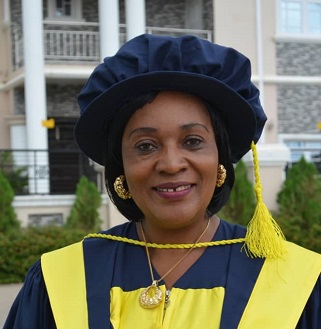
Dr. Mbu Dora Nyuykighan
The role of a leader is to inspire and create followers who are also self-leaders. The task of a leader is to bring about constructive and necessary change. The responsibility of a corporate leader is to bring about the change in a way that is responsive to the true and long-term needs of all stakeholders.
Dr. Mbu Dora Nyuykighan is a mix of Cameroonian and Nigerian. She is an educationist, leader, and mother of two adults’ children. She holds a PhD in African Literature from the University of Yaounde, where she presently teaches as a senior lecturer in the Department of African Literatures and Civilisations. She studied and worked at some universities in Nigeria and Cameroon. Her research areas span across African literature, gender studies, and oral literature. She has a good number of scientific articles in national and international peer-reviewed journals
As a role model, a care-giver, humanitarian per excellence who caters for the elderly ongoing anglophone crisis in Cameroon, Dr. Mbu Dora Nyuykighan has carve out a niche in the world with her captivating educational background, and her role of leadership has encouraged her to empower girls and women economically to break the cycles of poverty.
In an exclusive interview with Adenrele Adewale (DNM) to commemorate International Women’s Month, Dr. Mbu Dora Nyuykighan shared the importance of International Women’s’ Day by recognising their achievements in various domains, politically, socially, academically, and technically, the barriers in building her career, and how she stands out as a modelling success for others.
Below are excerpts:
What does International Women’s Day mean to you, and why is it important?
This is an annual event celebrated worldwide every 8th of March. It is a day set aside to celebrate women by recognising their achievements in various domains—politically, academically, technically, and what have you. This day also advocates for gender equality, highlighting the challenges faced in society, from gender discrimination, wage gaps, under-representation in leadership roles, to violence against women.
This day is important because it draws the attention of the public to the persistent challenges women face with the aim of mobilising various stakeholders to address them. The day equally helps to foster solidarity among the women and for them to understand that gender inequality is a universal issue that transcends cultural and national boundaries.
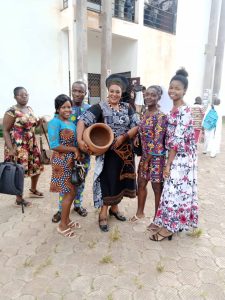
Have you ever faced any barriers in your career due to being a woman? If so, how did you overcome them?
The barriers are many, ranging from family to the academic milieu to the social milieu. Marriage and childbearing are the primary barriers that hindered my career growth and that of most women in academia. Societal expectations around caregiving for children and the elderly disproportionately affect women’s career progression, as a lot of women must drop out of school and suspend their academic pursuits to cater for family needs, thus slowing down their career progression. Also, women are under-represented in leadership roles within the academic milieu. Women are overlooked for promotions into senior positions compared to their male counterparts, thus perpetuating a lack of mentorship and role models.
To overcome the above barriers, I had to set up certain boundaries for myself. Prioritising tasks that align with my career goals by going back to school after giving birth to two children. Staying focused and joining women in academia for research and resource sharing groups helped me to advance in my academic career. Above all, having strong family support that encourages one to push on is one very big contributing factor to supporting women in academia, and that is one thing that I greatly appreciate my family for.
What do the two themes “Accelerate Action” and “For All Women and Girls: Rights, Equality, and Empowerment” mean to you?
“Accelerate Action” here refers to rallying calls from women to government institutions, individuals, and social groups in advancing gender equality by ensuring an end to gender-based violence, political under-representation, and closing the wage gaps. This is to say that progress in these domains has been slow, and there is a need for these stakeholders to accelerate their actions towards curbing gender inequality and discrimination from all fronts.
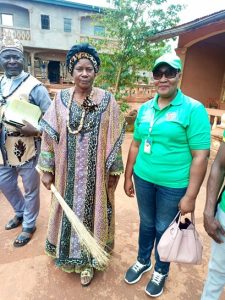
“For all women and girls: rights, equality, empowerment” means inclusivity in terms of gender equality for all women and girls irrespective of their race, class, disability, sexuality, religion, or location. This also goes further to talk about equal rights to education, access to healthcare, and legal protection, as well as economic independence and leadership opportunities for all women and girls irrespective of their backgrounds and social status.
What leadership lessons have you learnt during your career?
Embrace resilience as a superpower. That means I learnt to persist despite setbacks. I equally tried to balance caregiving with necessary research by setting boundaries and integrating personal priorities into the academic journey by collaborating across disciplines to expand my influence beyond my department. Practicing self-advocacy is also one lesson that works well for women. By assessing my career goals and communicating them to my mentors while celebrating my wins publicly, this makes me stand out as a modelling success for others.
Why did you choose a role in girls and women’s advocacy, and what are the success stories?
Advocating for girls and women helps in addressing systemic gender disparities, speaking for the marginalized voices, and empowering girls and women economically to enable them to break the cycles of poverty. The LEHA (Lawong Educational and Health Association) NGO continues to educate underprivileged young girls and displaced persons from the Anglophone regions of Cameroon because of the ongoing anglophone crisis as well as caters for the health needs of some elderly women in Nkum area providing free consultations, cancer, High blood pressure and diabetes screening. The Afrochild NGO is another organisation that caters for the displaced children from the Anglophone regions who find themselves in other parts of Cameroon with no access to education and social benefits.
What is the most important piece of advice you would give to a woman thinking of starting a career after reading your interview?
Refrain from gender bias syndrome by building self-confidence and moving on despite setbacks. Seek mentorship and sponsorship from experienced professionals and be the leader you wish you had. Prioritise tasks that align with your goals and take courses in leadership or technical skills.
How important is it for women to support each other in the workplace, community, or organisation, and what does that mean to you?
When women support each other, they transform individual potentials into collective power by breaking gender barriers and building bridges, challenging patriarchal norms that relegate women to the background, fostering economic growth, healthcare, education, and inspiring and supporting women across races and classes in society.
As a woman in a senior position, a global leader, and a role model to many, what do you think are the characteristics most important to get you to that level?
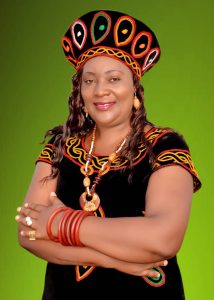
While individual traits are important, one can say that systemic change is equally critical because attaining a senior position in academia as a woman comes with its own barriers and bottlenecks that can be very challenging. However, for one to overcome these roadblocks, resilience should be the first major step to adopt, then strategise on how to navigate power dynamics, giving everyone a listening ear, thus fostering teamwork. Also invest in continuous education, be ready to learn even by embracing positive criticisms, and push for policies that can benefit those you lead.
Can you name one woman who has inspired you, and what do you think is the impact of role models?
Professor Wangari Maathai from Kenya is a trailblazer in environmental conservation, women’s rights, and democracy. She stands out as a role model empowering rural women in Kenya to fight environmental hazards and climate change through reforestation. Her fight for justice for the Kenyan woman equally empowers marginalised voices despite the challenges and threats she faced. To her, “A single tree can spark a forest; a single voice can ignite a revolution.” Her story is not just African history but a global blueprint for how women can heal the earth, uplift communities, and transform societies.
What three words would your family or friends use to describe you?
Hard-ardworking, Resilient, Motivating
What message would you have for women and girls around the world in celebration of International Women’s Day?
The message is simple: “Celebrate your strength, own your story, and never apologise for taking up space. Believe in yourself and have confidence in your abilities! Keep rising and keep roaring. Together, we are unstoppable!
Thanks for sharing with us. Dr. Mbu Dora Nyuykighan
Thanks, DNM for the opportunity.
#DNM #IWD #2025


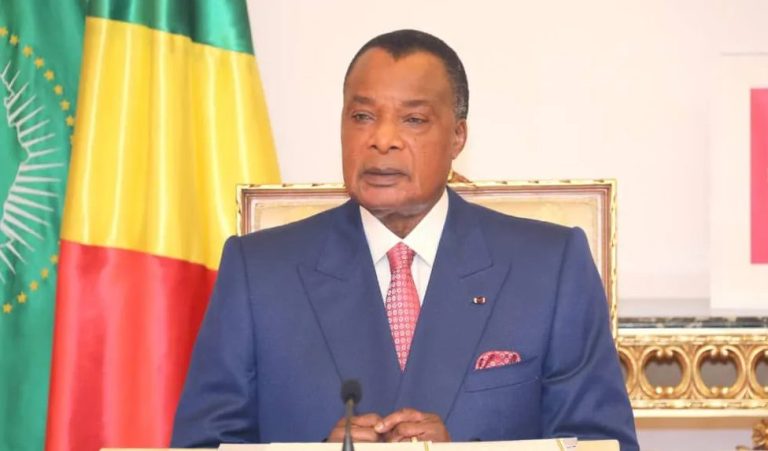
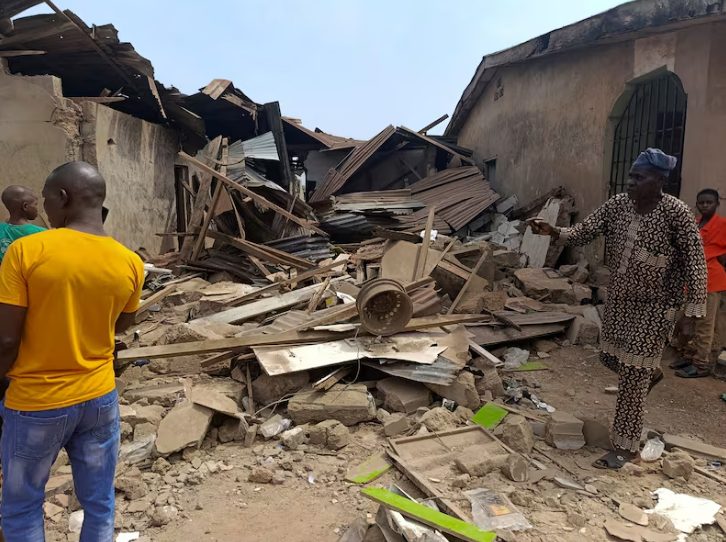
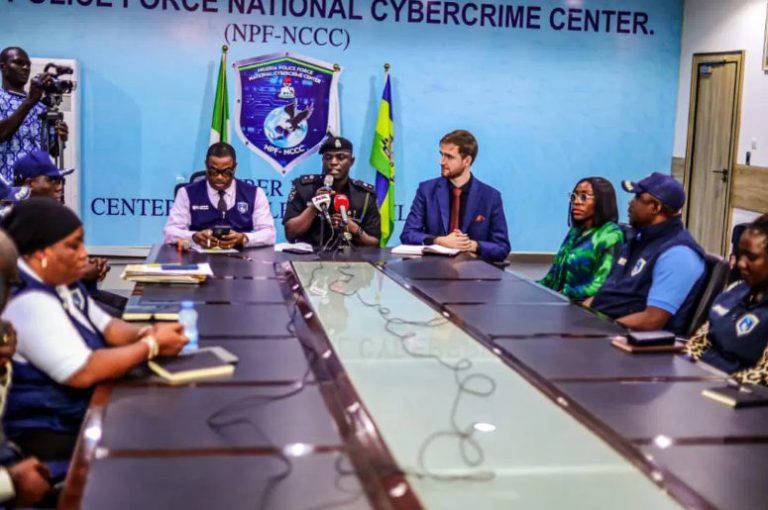
Awesome Dr Mbu. You are such an inspiration ❤. What I admire most is the humility